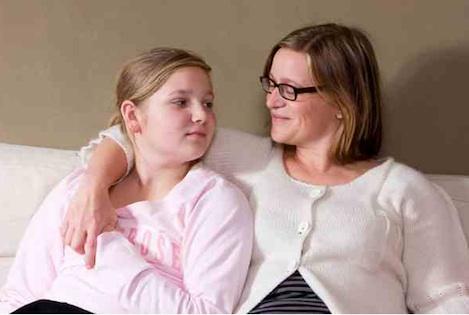I remember once attending a parent workshop at a wilderness therapy program in Arizona while finishing up my studies and working with teenagers in Washington DC.
We visited this program as their model was building awareness into wilderness therapy.
We sat on the outside as parents participated in discussions and lectures about building relationship with teenagers and finding a way to have a more positive parenting experience.
These parents had reached out to this program as their child’s behaviour at home had deteriorated in recent months. Most participants attending adventure therapy programs are adolescents presenting risky behaviour, oppositional attitudes and struggling with self-esteem.
These parents were on edge and anxious about how they could help get their child back on to a positive path.
This particular workshop struck me as I immediately wrote what I had learned and what I could do when I get back home to Washington DC.
My mother was receiving chemotherapy treatments for breast cancer and my brother, much younger, was working through middle school. The workshop spoke about the absolute importance of relationship with family members as the key predictor to a positive family experience.
I was caught so off guard, as the quasi-professional, during this presentation as I immediately knew where there was room for improvement back home and what I could do to make things better!
I had not necessarily been doing anything wrong but I saw what needed to be done. I realised that I needed to become more aware of my intentions and have a keen attention to detail during conversation. Not only have I taken these lessons into account as a therapist working with teenagers and their families but also at home.
The parents taking part in the workshop were at their wits end but I saw lessons could help when things had just started getting tough. It was all about building relationship and becoming Intentional.
Intentional is an incredible word to use as it describes acting with awareness and being mindful of how your family is feeling around you.
Therapist Dr. Harville Hendrix outlines key practices to becoming intentional with our dialogues: Mirroring, Validating and Empathising. The goal of these skills is to use them when we are concerned with our relationships, both with children and our spouses.
In parenting, mirroring involves being able to hear exactly what our child is saying without judgement or bias. There are times when we need to make the parenting decision when it comes to safety and risk but mirroring gives your child a different “gift.” Teenagers are spending time getting to know themselves as individuals (away from parents) and the music, clothes and rebellious behaviour can all be signs pointing to the person they are trying to find.
We often look at teenage behaviour as immediately dysfunctional but when we can practice mirroring we can hear why they like what they like and what they like about it.
Our heart needs to be in the right place and we need to open communication by putting ourselves out there as the listener.
What we hear may hurt, sting or touch on an old wound. However, mirroring is not about our wants or needs as parents. It’s the listening and intentional dialogues that open the gift of effective communication.
Empathising involves knowing exactly what our child is feeling and understanding how that feels. Young people are often constructing meaning by events happening all around them.
Most adolescents do not yet have the awareness to effectively problem solve and not make assumptions about what is happening, but we can teach that and help them see what is happening inside of them.
Saying things like “I can see that you are feeling…” and “Am I hearing you right?” It can feel unnatural to speak this way when we have not before but our child can sense when our intentions are only in understanding.
The final aspect of Intentional Dialogue is validating. We need to validate what our children say. We can often just provide a summary of our conversation and our teen will see that we were truly hearing what they were saying.
Summarise using our child’s vocabulary and remove judgment from the summary. End your summary with “Did I get all that right? Is there anything I have missed?”
If we are reactive or want to justify our actions, we need to acknowledge this inside of us to ensure that we stay intentional. Practicing these skills takes time and can be difficult.
However, when our teenagers start the journey of creating their identity, we need to be there for them and a relationship is essential to all the other practices of parenting. Without relationship we will be unable to teach, role model and correct problem behaviour.
Get intentional with our discussions and we will notice much more depth in our immediate conversations.


















__small.png)










